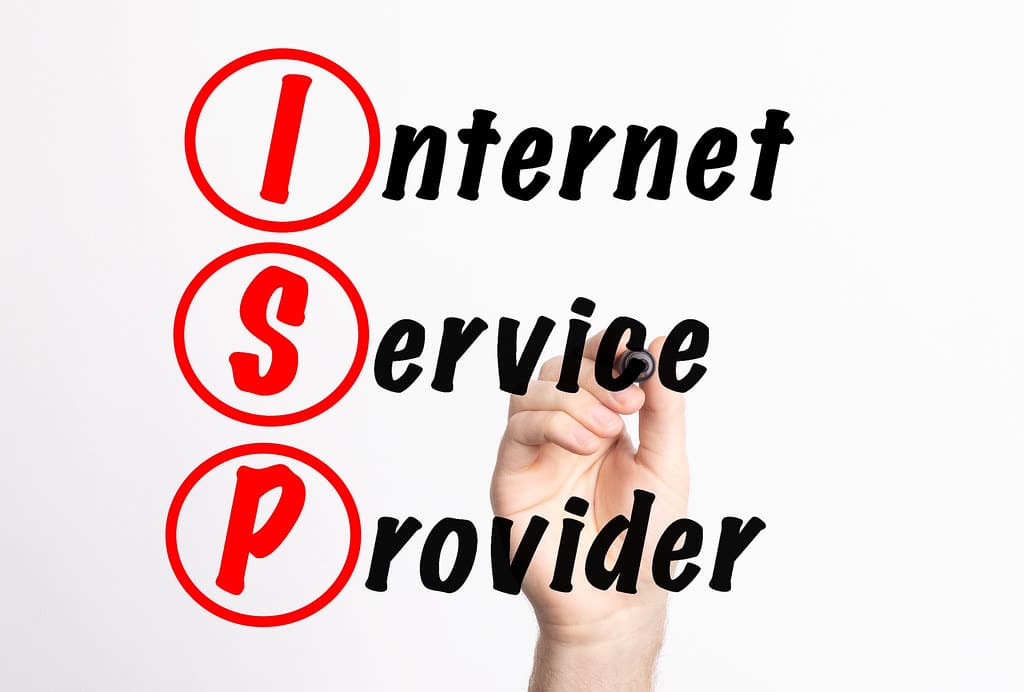When you purchase through links on our site, we may earn an affiliate commission. Here’s how it works.
What is an ISP – Overview
Internet Service Provider (ISP) is a term that refers to a company that provides internet access to business and personal computers. ISPs enable customers to surf the internet, shop online, connect with loved ones and conduct business for a fee.
ISPs can also provide other services, such as domain registration, email services, web hosting and browser packages. An ISP is also called an information service provider, an internet network service provider (INSP), a storage service provider, or any combination of these names based on the specific services offered by the company.
What is the Purpose of an ISP?

What Is an ISP – What Is the Purpose of an ISP
Initially, internet service was limited to government agencies and some university departments. This technology was made to give access to the general public through the World Wide Web in the late 1980s. In the beginning, consumers got limited access as there were a few ISPs, such as America Online (AOL), which used a dial-up connection through a phone line.
In the mid-1990s, the number of ISPs grew to several thousand as the internet grew in popularity. As the connectivity options increased and speeds were boosted, it gave birth to the ‘internet economy.
ISP companies developed and integrated more advanced technology, which allowed customers to access high-speed internet using broadband technology, through cable and digital subscriber line (DSL) modems.
The backdrop of this all contains a myriad of connections. First, local ISPs sold internet access to customers but paid larger ISPs for their access.
Then, these large ISPs paid even larger ISPs for internet access. Finally, the trail goes up to Tier-1 carriers that can reach every network access point without paying for internet access. These Tier-1 companies tend to own the internet infrastructure in the region.
ISPs provide customers with access to the internet, whereas plain access providers manage the digital traffic between the individual user and the overall internet.
However, consumers can also choose to buy other services in a bundled package, depending on the consumer’s location and availability.
Some of the additional services provided by major internet service providers are:
- Domain Registration
- Email Services
- Browser/Software Packages
- Web Hosting Services
What are Tier-1 Internet Service Providers?
Internet service provider companies must ensure that consumers can access the internet from anywhere, such as at home or outside a local coffee shop.
To ensure this, the ISP company must invest heavily in creating and maintaining an expensive infrastructure consisting mostly of optic fiber cables.
Due to the high investment cost, Tier-1 ISPs usually have a monopoly in a particular region. As a result, a single company may seem to have complete or near-total control of the marketplace in a specific area. In the US, companies may work in an oligopoly instead of a monopoly, where two or more companies collaborate to achieve similar market goals.
Is an ISP the Same as a WiFi Provider?
No, an internet service provider (ISP) and a WiFi provider are completely different.
The main difference between an ISP and a WiFi provider is then an ISP gives access, usually through a cable, digital subscriber line (DSL) or satellite connection. Major ISPs, such as AT&T or Verizon, directly offer wired internet connectivity to consumer homes and workplaces.
In contrast, WiFi providers provide internet connectivity to consumers using wireless technology. A modem is needed to deliver the internet service, while a wireless router is used to connect the internet-enabled device to the modem.
The modem works to convert the internet into a wireless signal for internet access.
Are There Different Types of ISPs?
There are two main types of ISPs – cable and DSL. However, other types are used by multiple neighbors to share a single internet connection, affecting the overall connectivity speed. For example, telephone services provide DLS connections that connect your DSL router to a phone cable or jack.
Dial-up connections are usually used in rural areas. This uses a fixed-line phone connection that connects the consumer to a remote server.
The most common and popular ISPs in the United States are Verizon, Comcast, AT&T and Charter.
Conclusion
An ISP (internet service provider) is a company that provides internet access to consumers. This is done through wired/cabled connections or using wireless technology. To access the internet, you must subscribe to an ISP.
See Also